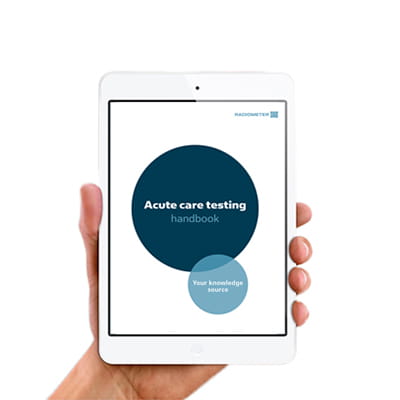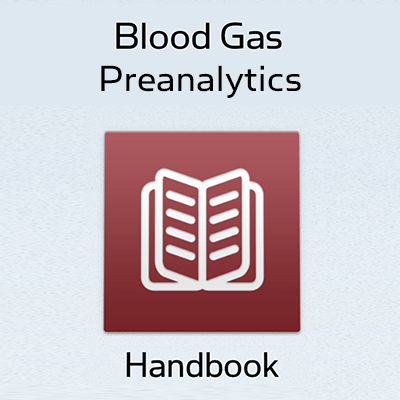Printed from acutecaretesting.org
July 2010
An unusual case of severe (fatal) metabolic acidosis
Summarized from Saidi H, Mani M. Severe metabolic acidosis secondary to coadministration of creatine and metformin, a case report. Amer J Emerg Med 2010; 28: 388. e5-388. e6.
Metabolic acidosis, the most common disturbance of acid-base balance among the critically ill, is characterized by arterial blood gas results that reveal primary decrease in bicarbonate and compensatory decrease in pCO2(a). Blood pH is reduced unless respiratory compensation is complete. It is most often the result of lactic acid accumulation due to circulatory collapse but there are many other causes.
A recently published case history describes metabolic (lactic) acidosis occurring in a 42-year-old man. The cause was attributed to the net effect of two drugs: creatine and metformin. The first is commonly self-prescribed by athletes and body builders to improve muscle capacity; and the second is a blood glucose-lowering agent prescribed for diabetes management.
This previously healthy man was self-prescribing creatine (5 g/day), when he became ill and was admitted to hospital. Diabetes was diagnosed, stabilized and the patient was discharged in a healthy state with a prescription for metformin 500 mg twice daily. Three weeks later he was admitted emergently to hospital in a critically ill state.
Blood gas results (reduced pH 7.25; reduced bicarbonate 12 mmol/L; reduced pCO2(a) 3.5 kPa; and markedly increased blood lactate 17.2 mmol/L) confirmed partially compensated metabolic (lactic) acidosis. He had no urine output, and raised serum creatinine (309 mmol/L) confirmed acute renal failure.
Due to his deteriorating condition he was urgently transferred for dialysis with bicarbonate replacement, but suffered cardiac arrest and sadly died before completion of dialysis. Lactic acidosis is a very rare, but well-recognized adverse effect of metformin use that only occurs in those with serious underlying illness (e.g. renal failure, liver failure, sepsis, etc).
The drug is contraindicated for diabetic patients with these additional medical problems. Creatine, too, is a safe drug in healthy individuals but can, very rarely, exacerbate pre-existing renal impairment.
The authors of this case study believe that creatine precipitated acute renal failure in this patient who, because of his presumably long-standing diabetes, had some subclinical renal impairment (diabetic nephropathy).
Acute renal failure caused by creatine then predisposed the patient to the metformin-associated lactic acidosis that was evident at hospital admission. So the combination of three, individually non-threatening factors: diabetes, creatine and metformin is thought to have conspired to cause the metabolic acidosis that contributed finally to the death of this patient.
May contain information that is not supported by performance and intended use claims of Radiometer's products. See also Legal info.
Acute care testing handbook
Get the acute care testing handbook
Your practical guide to critical parameters in acute care testing.
Download nowRelated webinar
Evolution of blood gas testing Part 1
Presented by Ellis Jacobs, PhD, Assoc. Professor of Pathology, NYU School of Medicine.
Watch the webinar








